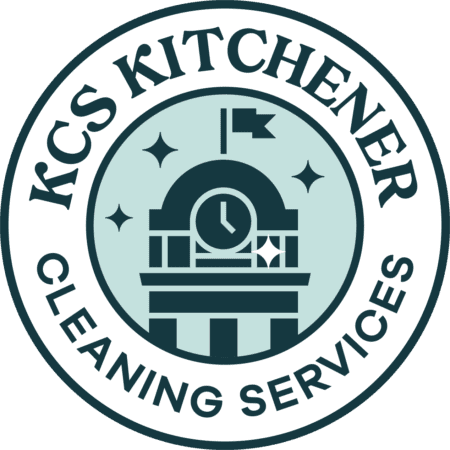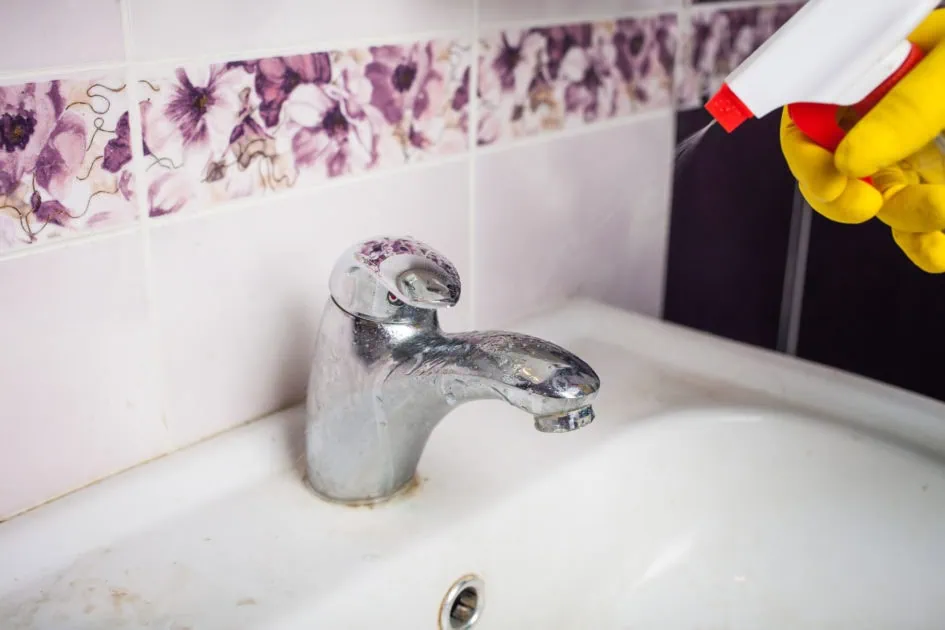Tired of spotting those pesky hard water stains clouding up your shower doors? You’re not alone. Many homeowners grapple with the challenge of keeping their shower doors sparkling against the stubborn, chalky residue left behind by hard water.
This nuisance is primarily due to minerals like calcium and magnesium, which remain after water evaporates, clinging to glass surfaces and diminishing their clarity and shine. But fear not! Our comprehensive guide is here to arm you with the knowledge and tools needed to effectively tackle these unsightly stains.
From understanding why these blemishes occur to exploring practical removal techniques and prevention strategies, we’ve got you covered. Whether you’re dealing with a fresh stain or battling ongoing buildup, our tips will help restore your shower doors to their gleaming glory and keep them looking pristine for years to come. Let’s dive in and turn those frustrating stains into a thing of the past!
Why Hard Water Stains Form on Shower Doors
Hard water stains on shower doors are a common and frustrating issue for many homeowners. These stains form when water, which contains high levels of minerals like calcium and magnesium, evaporates and leaves behind a residue. The primary reason for the formation of these stains is the mineral-rich nature of hard water.
As water splashes onto the shower doors during use, it slowly evaporates, but the minerals dissolved in it do not. Instead, they accumulate on the surface, creating a cloudy, white layer that can be difficult to remove. This process is exacerbated in areas with high mineral content in their water supply, making some regions more prone to hard water stains than others.
The significance of understanding this phenomenon lies not only in aesthetics and maintaining clear, clean-looking shower doors but also in preserving the longevity of the glass. If left untreated, hard water stains can etch the glass over time, leading to permanent damage. Addressing hard water stains involves regular cleaning with appropriate products designed to break down mineral deposits.
Preventative measures, such as installing a water softener system to reduce mineral content in water or using a squeegee to wipe down shower doors after each use, can also be effective in mitigating the formation of these stains. Understanding the cause and implementing these strategies can help maintain the appearance and integrity of shower doors, ensuring they remain clear and free of hard water stains.
Tailoring prevention and treatment strategies to address the specific challenges posed by the local water composition can be key in preserving the clarity and longevity of shower doors.
Identifying Hard Water Stains
Hard water stains are identified by a cloudy, white, or chalky residue on shower doors, appearing as spots, streaks, or a filmy layer. Recognising these signs is crucial for timely intervention to prevent permanent damage to glass surfaces.
Cloudy, White, or Chalky Residue
Hard water stains manifest as a cloudy, white, or chalky residue on shower doors, indicative of minerals like calcium and magnesium left behind after water evaporates.
Spots, Streaks, or Filmy Appearance
These stains often present as spots, streaks, or a filmy appearance on the glass, signaling the early stages of mineral buildup. Prompt identification and treatment are essential to preserve the shower doors’ transparency and integrity.
Initial Steps for Stain Removal
Before embarking on the task of removing hard water stains, begin by gathering cleaning supplies that are specifically effective for dissolving mineral deposits. This preparatory step is essential for a safe and efficient cleaning process, laying the groundwork for the successful eradication of hard water stains from shower doors.
Gather Cleaning Supplies
Initiate the process by assembling the essential cleaning supplies tailored for dissolving mineral deposits efficiently.
Protect Bathroom Surfaces
Ensure to protect bathroom surfaces by utilising protective gear or materials, safeguarding them against the corrosive effects of cleaning agents.
Cover Floor and Nearby Surfaces With Towels
Strategically cover the floor and nearby surfaces with towels to absorb any spills, thereby shielding these areas from potential damage caused by cleaning solutions.
Preparing Vinegar Solution
To effectively combat hard water stains, create a vinegar solution by mixing a 1:1 ratio of white vinegar and water. This blend leverages vinegar’s acidic nature, making it potent against the mineral deposits responsible for the stains. Transfer the solution into a spray bottle for convenient application, paving the way for an efficient and eco-friendly cleaning approach.
Mix 1:1 Ratio of White Vinegar and Water
Create a potent cleaning solution by combining equal parts of white vinegar and water. This blend leverages the natural acidity of vinegar to effectively break down mineral deposits.
Pour Mixture into Spray Bottle
Carefully pour the vinegar solution into a spray bottle, enabling easy and targeted application on areas affected by hard water stains. This approach ensures efficient use of the solution and enhances the cleaning process.
Applying Vinegar Solution
For effective stain removal, spray the vinegar solution generously on the areas of the shower door affected by hard water stains. Ensure complete coverage to effectively target and loosen the mineral deposits.
Allow the solution to sit for 15-20 minutes, giving the vinegar ample time to break down and dissolve the stubborn hard water stains, making removal easier. This step is crucial for loosening the stains, making them easier to scrub away without damaging the glass.
Scrubbing the Stains
After allowing the vinegar solution to penetrate the hard water stains, use a soft, non-abrasive sponge to gently scrub the affected areas.
Use a Soft, Non-abrasive Sponge
Opt for a soft, non-abrasive sponge to ensure the cleaning process does not scratch or damage the glass surface. It’s crucial for maintaining the integrity of the shower doors while effectively removing stains.
Scrub Gently in Circular Motions
Employ gentle, circular motions when scrubbing to effectively dislodge and remove the mineral deposits. This method promotes a thorough clean, ensuring that all areas of the stain are addressed without compromising the shower door’s appearance.
Rinsing Off Vinegar Solution
After thoroughly scrubbing away the hard water stains, it’s critical to rinse the shower doors with warm, clean water to wash off any residual vinegar solution and mineral deposits. This step is vital to ensure that no cleaning agent remains, as leftover residue could lead to streaks or spots.
Rinse With Warm, Clean Water
After scrubbing, rinse the shower doors thoroughly with warm, clean water. This step is crucial to wash away any leftover vinegar solution and mineral remnants, leaving the surface spotless and clear.
Dry With a Clean, Soft Cloth
Following the rinse, use a clean, soft cloth to dry the doors promptly. This action helps to prevent the formation of new water marks, ensuring the glass remains pristine and streak-free.
Drying and Polishing Shower Doors
After the cleaning solution has been thoroughly rinsed off, the next critical steps are drying and polishing the shower doors to achieve a flawless, streak-free finish. Consistent drying and polishing after each cleaning session are key practices in maintaining the long-term clarity and cleanliness of shower doors.
Use a Separate Dry Microfiber Cloth
Opt for a separate dry microfiber cloth specifically for the drying phase. This choice is crucial for its superior ability to absorb moisture without leaving streaks, ensuring a clean and residue-free surface.
Buff Doors to Restore Shine
Gently buff the shower doors with the microfiber cloth to enhance their natural shine. This action not only brings back the glass’s luster but also acts as a preventative measure against the formation of water spots, keeping the doors clear and visually appealing.
Preventing Future Stains
To effectively minimise the recurrence of hard water stains, it’s crucial to implement regular maintenance routines. These strategies not only keep the shower doors looking pristine but also reduce the frequency and intensity of deep cleaning sessions.
Use a Squeegee After Every Shower
Employ a squeegee after every shower to quickly remove water from the glass, effectively preventing the formation of mineral deposits.
Regularly Clean Shower Doors Weekly
Incorporate weekly cleaning of shower doors into your routine, using cleaning agents that prevent the accumulation of minerals.
Use Mild Detergent or Vinegar Solution
For regular maintenance, use a mild detergent or a vinegar solution to dissolve and remove any mineral buildup, keeping the glass clear.
Apply a Protective Coating
Applying a protective coating to the shower doors creates a barrier that repels water and minerals, significantly extending the time between cleanings.
Commercial Rain Repellent Products
Commercial rain repellent products, typically used on vehicle windshields, can also be effective in repelling water from glass surfaces, offering an additional layer of protection.
Natural Options Like Lemon Oil
Natural options, such as lemon oil, not only provide a protective barrier against water stains but also leave a pleasant, fresh scent, enhancing the overall cleanliness of the bathroom.
Seeking Professional Help
For persistent or severe hard water stains that resist home remedies, seeking professional help is advisable. Opting for professional assistance not only restores the aesthetic appeal of your shower doors but also safeguards your investment over time.
For Persistent or Severe Stains
Engage professional cleaners for persistent or severe stains that defy standard home cleaning solutions, ensuring thorough and safe stain removal.
If There is Potential Damage to Shower Doors
Contact a specialist if the shower doors show signs of potential damage, to properly evaluate and remedy the situation, preventing further deterioration.
Keep the Sparkle Going
Hard water stains might seem unbeatable, but with the right methods—like vinegar solutions, gentle scrubbing, and consistent upkeep—you can restore your shower doors to crystal clarity. By understanding why these stains form and taking preventative steps, you’re setting yourself up for a permanently polished bathroom. Whether you’re tackling new buildup or years of grime, the key is consistency and care.
At KCS Kitchener Cleaning Services, we bring professional-grade solutions and eco-friendly cleaning expertise to every home we touch. Based in Cambridge and trusted across Kitchener-Waterloo and Guelph, we know how to handle the tough stuff—so you don’t have to.
Don’t settle for cloudy glass and daily frustration. Let KCS Kitchener Cleaning Services bring the shine back to your shower—and your entire home. Click below to book your free estimate and experience the joy of a space that truly sparkles!


